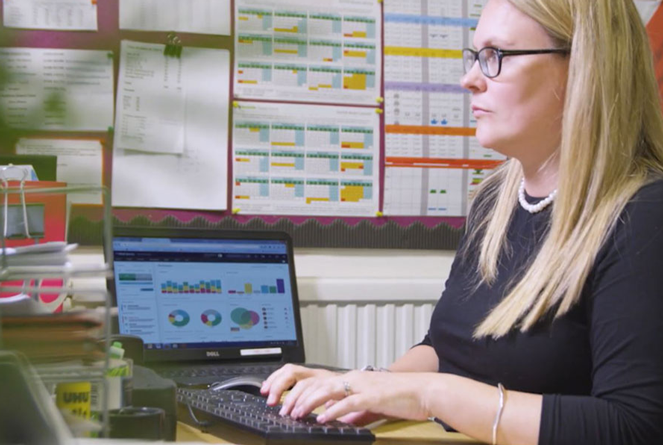Introduction
Encouraging increased visits to your school website from parents and the broader community can be challenging. Drawing from our experience assisting over 7,500 schools, academies, and trusts in creating new school websites and enhancing their online performance, Juniper Education is well-versed in Search Engine Optimisation (SEO). We're here to support schools in improving their Google ranking and boosting web traffic. Explore our recent blog, which offers actionable tips to improve your school's Google standing, amplify website traffic, and ensure your school shines online. Before diving into how your school can improve its SEO, let's look at what SEO means and why it is important for schools.
What is SEO?
Search Engine Optimisation, also known as SEO, is a strategic approach to improve a website's visibility on search engines like Google. It involves refining various aspects of the site to align with search engine algorithms, making the content more accessible and understandable. Successful SEO enhances a website's ranking, making it more likely to appear when users search for related information or services.
Does SEO matter for schools and trusts?
Some people think schools don't need SEO, but that's not true. SEO is like giving directions to your website on the internet. Google is a big player in this, with over 90% of people using it for searches in the UK daily. Google gives us data through tools like Keyword Planner and Google Trends. These tools help us see what people search for each month and year.
Google became popular because it connects what people type into the search bar with what they want to find. This means schools can determine the words people use and ensure their website shows up first when someone looks for them. Don't ignore Google – it's a powerful tool for schools to reach more people.
Top tips for improving SEO on your school website
Make your school visible in local searches
Google introduced Google My Business (formerly known as Places and Maps) with the intention of offering local businesses an opportunity to compete with larger players despite budget constraints. Recognising users' preference for local transactions, Google designed this platform.
Through the verified Google My Business (GMB) address process, Google directs users to regional map results on the first page, capturing approximately 25% of page clicks. This section facilitates reviews and positions businesses favourably in the coveted 3-pack – the top 3 local results. A robust GMB account and numerous positive reviews increase the likelihood of securing a top spot.
While some schools might question the need for SEO, it's essential for ensuring visibility, especially to users unfamiliar with the school. For instance, a new parent in the area might search for a "private nursery school + region," emphasising the importance of being on the first page. Optimisation becomes crucial because less than 3% of users reach the results on page 2 of Google.
It's noteworthy that Google can detect your location through your IP address. Even if users don't specify a region in their search term, Google provides local results, including the Google Maps section.
Your GMB account is also a valuable tool for engaging with the public. It allows you to address questions, share event information, and promote activities like open days, galas, or sports fixtures, ensuring timely visibility.
Understanding search intent for schools
In today's digital landscape, users of search engines exhibit heightened sophistication and impatience. For instance, if someone is seeking a girls-only private boarding school for ages 11 and above, they'll likely employ detailed, long-tail key terms in their search. Understanding these keywords and their associated search volumes becomes pivotal for optimising your website to match user queries precisely. The more aligned your page is with the search term, the higher it will be ranked. For effective on-page optimisation, consider creating specific pages catering to various aspects of search intent, such as year groups, subjects, and enrichment activities. Ideally, your pages should precisely match the search intent, whether it's for boarding schools or other educational levels like nursery, prep, primary, secondary, or sixth form.
Optimising your website based on your region
While having a GMB account and main site pages tailored to your specific location is essential, it's crucial to consider neighbouring regions connected by transportation links. Parents residing in these areas may not necessarily include your town or location in their searches, and they might be unaware of your school's transportation services for pupils from their region. This is especially pertinent for schools situated outside major towns and cities.
To address this, a 'regional landing page strategy' is necessary. This involves creating pages that are often not prominently featured on the main navigation bar but are optimised for specific keywords and the targeted region. For instance, creating pages like "girls boarding school + target region." These pages should comprehensively provide information on transport links and access details to reassure parents about the logistical aspects of enrollment.
Attracting students from overseas
When it comes to schools aiming to attract students from abroad, optimising the website for international keywords becomes crucial. This optimisation is best achieved through the creation of country-specific pages or subfolders. Country folders, for instance, can be geo-targeted using your Google Search Console account. This effectively communicates to Google that the page and its information are intended for the search engine of another country, such as Google.fr for France or Google.de for Germany.
The school then has the flexibility to present these pages in English or other languages.
Once again, the decision-making process should be informed by search data. For example, analysing how many users in France are searching for terms like 'Girls Boarding School UK' provides valuable insights. Let data guide your decisions, and simplicity is always recommended. Identify the keywords you ideally want to be associated with and determine which regions are relevant to your school.
On-Page optimisation
The practice of on-page optimisation involves taking various measures on an individual web page, encompassing both the back end (CMS) and front end, with the aim of prompting Google to rank the page on the first page of search results. Various elements contribute to achieving this goal, and certain web platforms exhibit superior SEO functionality compared to others.
Key elements in this process encompass:
- Meta Title (page title)
- Meta Description
- H tags
- SEO-friendly page URLs
- Keyword density in page copy
- Internal and outgoing links
- Anchor text links
- Site structure
- Structured data
All these factors matter, including links from other websites pointing back to yours, called 'backlinks.' These backlinks are often not used enough in the school sector, missing a chance to build a strong online presence. Basically, the more links you have from well-respected websites, the more Google sees you as important, increasing your chances of appearing higher in search results.
Website loading speed on mobile devices
Google introduced a significant change known as the 'mobile-first index' some time ago. This update was prompted by the fact that over 70% of searches now occur on mobile devices or tablets. Recognising users' impatience, especially on mobile, Google aimed to ensure the best possible user experience. Waiting for a website to load is considered a poor experience and often leads users to exit before getting the information they need.
The mobile-first index prioritises ranking sites based on their performance on mobile devices. The main focus is to have a fully responsive site for easy navigation on mobile devices. It's crucial for your site to load quickly on mobile.
To avoid slowing down your site, optimise visual files like large photos and videos before uploading them.
Content strategy
The age-old saying 'Content is King' holds truer than ever in today's competitive online world. Despite facing formidable competitors, you can outshine them by creating highly relevant, long-form content that closely aligns with users' search intent.
You're likely acquainted with the 'featured snippet' that appears at the top of Google's page one, accompanied by frequently asked questions. This entire section of search results currently captures 37% of page clicks, presenting a significant opportunity to make your content discoverable by new users.
The most effective strategy involves researching commonly asked questions, analysing the information presented in the results, and aiming to surpass that content in terms of both quality and quantity. Longer-form content, ideally around 3000 words, paired with additional content such as PDF downloads, videos, and graphs, proves optimal.
This content strategy is a true win-win. Not only does it position your content to compete for featured snippets, but it also adds high-quality, relevant landing pages that enhance organic search rankings.
Getting SEO right for success online
Just like anything else, SEO requires learning best practices, consistent effort, and ongoing attention. The opportunities are vast, and with increasing search volumes, it's becoming more important.
We understand schools are busy with important tasks like teaching, safeguarding, and operations. That's where Juniper steps in. We've assisted schools like yours to shine online through enhanced SEO and have created a free SEO best practice guide to help you boost your school’s online presence.
Alternatively, why not book a free consultation with our expert web team, who specialises in education? We can help put your school website in the spotlight.



/Primary%20school%20.jpg?width=2000&name=Primary%20school%20.jpg)








.png?width=940&height=788&name=Lingfield%20College%20Case%20Study%20(5).png)
-1.png?width=1000&height=833&name=National%20Association%20of%20Head%20Teachers%20(3)-1.png)
-3.png?width=1080&height=1080&name=Untitled%20design%20(10)-3.png)






